Do You Want to Start Camping – But Don’t Know How to Get Started?
 I’ve talked about the 5 Benefits to Being Outside in Nature, and Why Primitive Camping Gives You Valuable Skills. And I’ve even talked about Life Lessons Learned While Camping. But for those of you who have not yet ventured out into the wilds, and want to, you may find your first obstacle is that you don’t know where to start. It can be overwhelming, especially if you walk through REI or other outdoor supply stores. The variety of equipment and products available may only serve to confuse you. You’re not sure what you need or don’t need. Before you go wandering out into the woods, let’s talk about all the different ways you can go about this adventure, and then you’ll have a better idea of what equipment you will want to take.
I’ve talked about the 5 Benefits to Being Outside in Nature, and Why Primitive Camping Gives You Valuable Skills. And I’ve even talked about Life Lessons Learned While Camping. But for those of you who have not yet ventured out into the wilds, and want to, you may find your first obstacle is that you don’t know where to start. It can be overwhelming, especially if you walk through REI or other outdoor supply stores. The variety of equipment and products available may only serve to confuse you. You’re not sure what you need or don’t need. Before you go wandering out into the woods, let’s talk about all the different ways you can go about this adventure, and then you’ll have a better idea of what equipment you will want to take.
Here’s a Basic Guide for Types of Camping to Consider:
Campground Camping:
By far the most popular way most people start camping. Most State and National Parks have structured campgrounds, and even some City Parks have camping areas. These can range from a simple pull-out where you can pitch your tent, to elaborate set-ups with picnic tables, fire pits, B-B-Q Grills and potable water available.  There may even be a campground store, where you can pick up something you forgot to pack. Sometimes you can purchase firewood from the ranger station. Some campgrounds offer a section where you can get hook-ups for your RV or Camper. Most campgrounds have toilets, but this can mean a pit toilet, or it may be modern facilities with sinks and running water, including hot water showers. Always check to see what will be available before you go, so you can bring the necessary supplies. Also, check with the park to see if the campground is ‘first come, first serve’ or if you can make reservations ahead of time. Note: most reservation spots fill up months (or a year) ahead of time and you may have to take the first come version. If so, make sure to arrive early in the morning to secure a spot. Campgrounds are a great place to start as a novice because you can forget things and still survive. You can always drive to the nearest city and get what you need. It gives you the opportunity to get out into nature without worrying about how to survive and without leaving all the comforts of home behind.
There may even be a campground store, where you can pick up something you forgot to pack. Sometimes you can purchase firewood from the ranger station. Some campgrounds offer a section where you can get hook-ups for your RV or Camper. Most campgrounds have toilets, but this can mean a pit toilet, or it may be modern facilities with sinks and running water, including hot water showers. Always check to see what will be available before you go, so you can bring the necessary supplies. Also, check with the park to see if the campground is ‘first come, first serve’ or if you can make reservations ahead of time. Note: most reservation spots fill up months (or a year) ahead of time and you may have to take the first come version. If so, make sure to arrive early in the morning to secure a spot. Campgrounds are a great place to start as a novice because you can forget things and still survive. You can always drive to the nearest city and get what you need. It gives you the opportunity to get out into nature without worrying about how to survive and without leaving all the comforts of home behind.
Camping on BLM Land:
 There are millions of acres of Public Land that are managed by the Bureau of Land Management and are free for camping. This requires some planning ahead as there are usually no facilities at all—just open land. So you must bring your own potable water for drinking and cooking. You will need shelter (Tent, RV or Camper) and a way to cook your food, such as a camp stove or backpack stove, as there may be rules in place that don’t allow for a campfire (due to wildfire hazards). There are usually no toilet facilities, so you must plan ahead. Make sure you bring a little trowel (or shovel) and toilet paper(always bring extra toilet paper when camping). We have had some of our favorite camping on BLM land. It’s usually just us and nature and a big wide sky, full of stars at night!
There are millions of acres of Public Land that are managed by the Bureau of Land Management and are free for camping. This requires some planning ahead as there are usually no facilities at all—just open land. So you must bring your own potable water for drinking and cooking. You will need shelter (Tent, RV or Camper) and a way to cook your food, such as a camp stove or backpack stove, as there may be rules in place that don’t allow for a campfire (due to wildfire hazards). There are usually no toilet facilities, so you must plan ahead. Make sure you bring a little trowel (or shovel) and toilet paper(always bring extra toilet paper when camping). We have had some of our favorite camping on BLM land. It’s usually just us and nature and a big wide sky, full of stars at night!
 Backpacking:
Backpacking:
This is how we started camping, so our supplies were chosen with much thought and consideration for weight and bulk, since everything had to be packed in (carried on our back) with us. Backpackers usually carry lightweight, compact tents that only hold one or two people and their sleeping bags. Stoves are tiny and hold one pan. Dried foods are popular as you only need to add boiling water to make a meal. You must supply your own water, and since you won’t want to carry all that weight, you’ll need a water filter to make sure your drinking water (as you find it) is rendered safe to consume. I must say, there is something quite wonderful about hiking in the back country and knowing you have everything you need right there with you. It makes you realize how little we need to survive (for short-term, anyway).
Basecamping:
Hard-core outdoors people may opt to take it up a notch, from camping in parks or even on BLM land, to actual wilderness survival.  This means you cannot do this in protected parks, and requires a place in the outdoors where you can explore and not trespass on private property, unless you have permission. You will most likely be hiking into the area and carrying in what you need—which will mostly be the tools for basic survival. You will be building your own shelter, as well as creating fire. You will be setting up a semi-permanent basecamp where you can shelter out of the weather and sleep. You’ll build a fire pit for cooking and warmth. During the daylight hours you may be ranging out into the wilderness to set snares, hunt or fish, or at the least to gather water. But you’ll have a basecamp to come back to every evening for shelter. Basecamping is a great way to practice your survival skills and learn new ones. I suggest you take your first venture with someone already well-versed in wilderness survival. This is serious business. Never under estimate Mother Nature!
This means you cannot do this in protected parks, and requires a place in the outdoors where you can explore and not trespass on private property, unless you have permission. You will most likely be hiking into the area and carrying in what you need—which will mostly be the tools for basic survival. You will be building your own shelter, as well as creating fire. You will be setting up a semi-permanent basecamp where you can shelter out of the weather and sleep. You’ll build a fire pit for cooking and warmth. During the daylight hours you may be ranging out into the wilderness to set snares, hunt or fish, or at the least to gather water. But you’ll have a basecamp to come back to every evening for shelter. Basecamping is a great way to practice your survival skills and learn new ones. I suggest you take your first venture with someone already well-versed in wilderness survival. This is serious business. Never under estimate Mother Nature!
 Recreational Vehicles and Campers:
Recreational Vehicles and Campers:
I have nothing against using these as a way to escape the city and get outside. Many people are not comfortable giving up all the luxuries of city living, or are at an age where they can’t tent camp anymore, but still want to experience nature and travel our wonderfully diverse country. For some, this is their permanent year-round home. Whatever it takes to get you out-of-doors is a boon, as far as I’m concerned. Traveling like this means looking ahead for places that can accommodate the vehicle. You may or may not always have electrical hookups.
If you’re still nervous about this – pitch a tent in the back yard for practice!
I hope you are inspired to get out into nature, no matter which type you choose!

 Backpacking:
Backpacking:  Recreational Vehicles and Campers:
Recreational Vehicles and Campers: 
 Being outside in nature is the most basic part of who I am. Besides gaining knowledge about wildlife, I learn lessons about who I am, and surprise myself about what I am capable of achieving. Nature continually inspires me. It is a part of all my writings, no matter the genre or subject matter.
Being outside in nature is the most basic part of who I am. Besides gaining knowledge about wildlife, I learn lessons about who I am, and surprise myself about what I am capable of achieving. Nature continually inspires me. It is a part of all my writings, no matter the genre or subject matter. 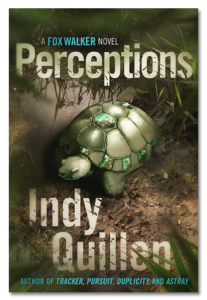

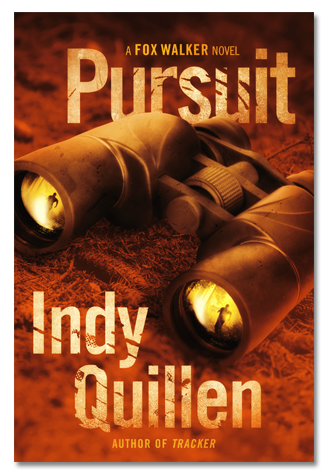
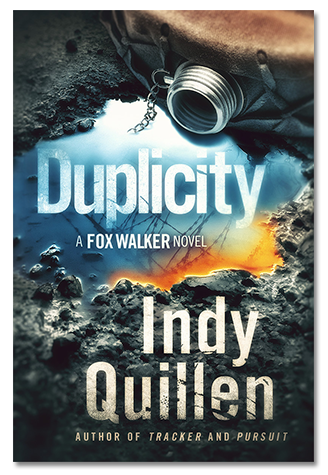
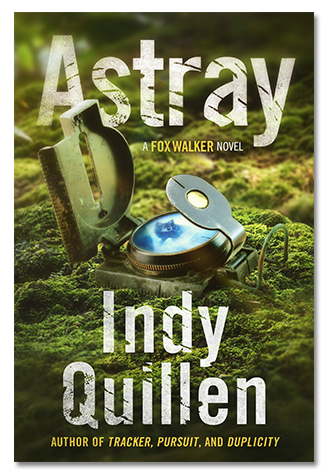

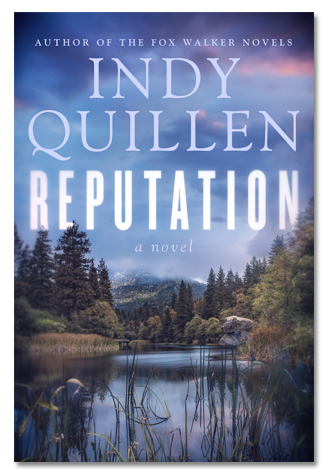
You could probably add to this exactly how campers might use that trowel. Like how many inches to dig, and where to dig or more importantly where not to lol… near camp or water sources. 😉
Good information for hikers too. As seeing toilet paper along a trail tends to dampen the spirit of things.
Danielle – heh, that’s a good point! I tend to presume people know those things, but in reality there are probably more who don’t know than those who do. Thanks for reading and commenting! :0)